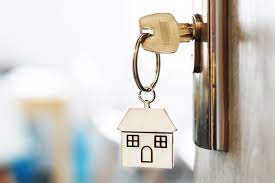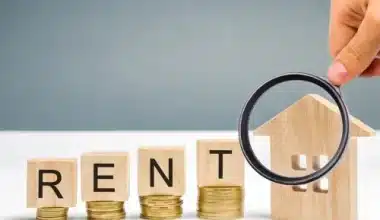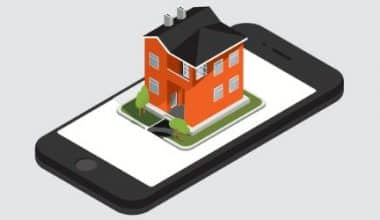Do you want to buy a home but don’t have enough money? You can apply for a mortgage. In this article, you’ll learn how to qualify for a mortgage loan even if you have a low income or bad credit. You may ask, “Can I qualify for a mortgage with no down payment?” We’ll answer this question as well.
How To Qualify For A Mortgage Loan
#1. Improve Your Credit
Your credit score greatly affects your ability to receive a home loan. Take a few actions to restore your credit to help you qualify for additional loan kinds and unlock cheaper interest rates. Here are three simple steps to getting started on the road to better credit.
- Make all of your payments on time. The simplest strategy to improve your credit score is to establish a track record of timely payments. Make a note of when each of your loan and credit card installments is due, and always make the minimum amount. You could also enroll in auto pay for some of your loans if it is accessible.
- Maintain vigilance over your credit consumption. Do you charge too much on your credit cards each month? If this is the case, lenders will view you as a riskier candidate. To achieve the greatest improvement in your credit score, try to use no more than 30% of your entire available credit each month.
- Pay off your debts. Paying down debt demonstrates that you understand how to handle your finances and that you do not borrow more money than you can afford to repay. Make a strategy to pay off your debts as soon as possible and watch your credit score skyrocket.
#2. Reduce Your DTI Ratio
Reduce your DTI ratio to free up additional funds for a down payment – it will make you a more enticing candidate to lenders. There are two basic techniques to reduce your DTI ratio:
Reduce your spending. Direct all of your additional monthly money toward debt reduction and downsizing to lower your living expenditures.
Increase your earnings. Request a raise at work, start a side business, or aim toward receiving extra overtime on each of your paychecks.
Neither strategy is simple, but both can dramatically increase your chances of success with lenders.
#3. Save More for a Larger Down Payment
Greater down payment lowers the amount your lender must offer you. This reduces the lender’s risk of your loan because they lose less money if you default. Saving for a higher down payment will make you a more appealing candidate for a loan and may even persuade a lender to give you a break in other aspects of your application. Use the following suggestions to boost your down payment fund:
- Make a savings budget. Examine your monthly budget to see how much you can afford to save each month. Keep your down payment money in a separate savings account and resist the urge to use it.
- Start a side business. It’s never been easier to earn additional money outside of your job in the on-demand “gig” economy. Drive for a rideshare service, deliver food for local companies, or sign up for a few odd jobs on sites like TaskRabbit.
- Sell some of your things. Sites like eBay, Poshmark, and ThredUp make it simple to sell old stuff you no longer need. Search around your home for stuff you think you can sell and list them.
#4. Explore Government-Backed Loans
Government-backed loans are a particular type of financing choice that has insurance from the federal government. This means that the regulatory body covers the bill on behalf of your lender if you default on your loan. Government-backed loans are less risky for lenders and have lower standards for applicants. However, government loans each have their own special requirements you need to meet before you qualify.
There are three major categories of government loans:
USDA loans: USDA loans are insured by the United States Department of Agriculture. These loans can allow you to buy a property in a suitable rural or suburban region with no money down. We don’t currently provide USDA loans.
VA loans: VA loans are backed by the Department of Veterans Affairs. Generally, you can buy a home with no down payment with a VA loan.
FHA loans: FHA loans are insured by the Federal Housing Administration (FHA) (FHA). FHA loans offer lesser credit scores and income standards and can allow you to receive a mortgage with as little as 3.5 percent down.
#5. Consider Having A Co-Signer
A co-signer is someone who agrees to take financial responsibility for a mortgage should the original applicant fail to make their payments. Having someone co-sign on your mortgage application could boost it in the eyes of a lender, as it can convince them that they’ll be repaid even if the borrower defaults.
How to Qualify For a Mortgage with Bad Credit
While acquiring a mortgage for a home or refinancing with less-than-perfect credit can cost more, it might still be more enticing than continuing to pay rent. Here are some pointers to help you get a mortgage with bad credit:
#1. Shop around
Every mortgage lender is different, and some can offer lower rates than others. According to research, getting multiple rate quotes can save you thousands of dollars over the course of a 30-year mortgage.
#2. Think bigger than banks
Non-bank and online lenders, credit unions, and other types of lenders compete for your business. Allow them to compete for it to see where you get the best offer.
#3. Investigate bad credit home loans
If you’re a first-time homebuyer or otherwise qualify for low-income loan programs, you have options other than a conventional loan. VA and USDA loans have no down payment and no minimum credit score, so check with your lender to see if you qualify. Fannie Mae HomeReady, Freddie Mac HomeOne, and Home Possible loan programs, as well as numerous first-time homebuyer programs, are also worth investigating.
#4. Find a co-signer
If you have poor credit, you may want to consider having a family member or friend with better credit co-sign your mortgage. This can help your application, but only if the co-signer is able and willing to take on the debt.
#5. Check to see if you are eligible for down payment assistance
If you have bad credit and want to get a mortgage, you may be concerned about making a down payment or hoping to increase your down payment to compensate for your credit situation. There are over 2,500 down payment assistance programs nationwide, so you may be eligible for one.
#6. Make no major changes to your financial situation
A new credit card or large purchase can lower your credit score, so avoid taking on or applying for new debt during the mortgage application process.
#7. Keep an eye out for ‘guaranteed’ approval loans
If you see ads promising “guaranteed” mortgage approval regardless of credit, that’s a red flag. Under federal law, a lender must verify a borrower’s ability to repay a mortgage, so there can’t be a “guarantee” unless that happens. You might even get that guaranteed approval on these types of offers, but it will come at an exorbitant or inflated cost.
How To Qualify For A Mortgage With Low Income
Obtaining a mortgage with a low income can be difficult, but it is not impossible. There are other actions you can do to improve your chances of acceptance.
#1. Check your credit score
Lenders will consider your credit score in addition to your income. Lenders use this number to determine how risky you are to lend to. If your salary is minimal but you have an excellent credit rating, this will work in your favor. Check it on a frequent basis and do everything you can to maintain the number high and your record looking nice.
#2. Understand your earnings.
When compared to someone with a salary or stable income, the amount you’ll be able to borrow can be difficult to calculate. Lenders try to address this by looking at your annual salary over the last three years and taking the average or lowest figure to determine how much you’ll be able to repay. Start going through your accounts to get a sense of the numbers. You may then use a Mortgage Calculator to determine how much you could potentially borrow.
#3. Choose the ideal moment.
Timing is everything. If possible, wait until your income is more stable (for example, if you’re working on a long-term project) before submitting your application. You want to make the best impression on potential lenders.
#4. Display your accomplishments.
Having recurring customers or long-term contracts will demonstrate a certain measure of stability. Showing potential lenders your track record and earning potential will make you more appealing as a mortgage applicant.
#5. Make a larger deposit.
If you’re a first-time buyer, putting down more money upfront will help potential lenders mitigate risk. It also demonstrates that you are a good saver, which will lead to more competitive prices.
#6. Consult with a mortgage broker.
The mortgage market is massive. It can be especially difficult if you are concerned about your money. A professional broker understands the market, which lenders are most likely to accept you, and how to make your application look as good as possible.
How To Qualify For A Mortgage With No Down Payment
The only method to secure a mortgage with no down payment through the main mortgage investors is to take out a government-backed loan. The federal government guarantees government-backed loans. In other words, if you stop making mortgage payments, the government (together with your lender) helps foot the price.
Mortgage Options With No Down Payment
Let’s look at how to receive a VA loan or a USDA loan, two programs that allow you to buy a home with no down payment.
VA Loans
If you are a member of the active-duty service, the National Guard or reserves, or the qualified surviving spouse of a deceased veteran, you may be eligible for a VA loan. VA loans are guaranteed by the Department of Veterans Affairs and are a terrific way to buy a house with no money down. In addition, VA loans allow you to pay a one-time VA funding charge of 2.3 percent of your loan amount in place of mortgage insurance. The funding charge with no down payment is 3.6 percent for each successive use of a VA loan.
To be eligible for a VA loan, you must qualify for at least one of the following service requirements:
- Served 90 days of wartime active duty in a row
- Served 181 straight days of active service during peacetime
- Served in the National Guard or Reserves for more than 6 years or for at least 90 days under Title 32 commands, with at least 30 of those days being consecutive
- Be released due to a service-connected disability
- Be the spouse of a service member who died in the line of duty or from a service-related disability.
In addition to service requirements, you must have a credit score of at least 580 to qualify for a VA loan.
USDA Loans
A USDA loan is one that is guaranteed by the United States Department of Agriculture. Rocket Mortgage does not currently provide USDA loans. USDA construction loans and USDA loans are available from the government to support development in rural and suburban regions. You can acquire a USDA loan with no money down. USDA loans also offer cheaper fees than other types of loans.
To qualify for a USDA loan, both you and your home must meet a few conditions. First and foremost, your home must be in a rural or suburban setting. Check out the USDA’s map of qualifying locations to see whether your property qualifies. Anywhere outside of an orange zone on this map is considered rural. Furthermore, your house cannot be a working farm. It must be a single-family home, and you must live there as your primary residence.
In order to qualify, you must also meet certain financial requirements. Your household’s combined gross income cannot exceed 115 percent of the county’s median income. Your debt-to-income ratio should not be more than 45 percent, and you need to have a FICO® Score of at least 640 to be considered.
How Long does it take to get a Mortgage Loan?
It usually takes between 30 and 60 days from the time of mortgage approval to close the loan. The complexity of your loan will also play a role in how long it takes to close; for example, a government-backed loan has a reputation for taking more time than a conventional loan.
Can you get a Mortgage without a Job?
As long as you can show the mortgage lender that you have sufficient income, you can get a mortgage even if you don’t have a job. You might be approved for a loan if, for instance, you have a lot of cash on hand, other sources of income (like rent or retirement funds), or a responsible person willing to co-sign for you.
What Credit Score is needed for a Mortgage?
In order to qualify for a mortgage, a credit score of at least 620 is usually required. However, conventional fixed-rate loans and adjustable-rate mortgages have stricter credit requirements than government-backed mortgages such as Federal Housing Administration (FHA) loans (ARMs).
How Difficult is it to get a Mortgage?
If you have a current mortgage, for example, your personal and financial situation will play a role. The likelihood of your mortgage application being approved depends on many factors, including your down payment, credit history, income, and level of debt.
Which Mortgage is Easiest to Get?
An FHA loan, insured by the Federal Housing Administration, is a mortgage with more lenient qualification standards. For instance, borrowers with lower-than-ideal credit scores and higher-than-ideal debt-to-income ratios might still qualify for this type of loan.
Why are People Denied a Mortgage?
In most cases, a loan application will be denied if the appraiser determines that the property will not yield a satisfactory return on the lender’s investment. Denial of a mortgage loan is never pleasant, but it may be for the best if it prevents you from buying a house that needs too many repairs.
What Increases my Chances of Getting a Mortgage?
If you have a history of paying your bills on time, you will greatly increase your mortgage approval odds. You’ll have to wait at least six years to repair your credit after missing a payment on your cell phone, being late on your electric bill, or paying a credit card bill late.
In Conclusion,
Qualifying for a mortgage entails many moving parts. However, if you have your finances in order and the proper documentation in hand, you will be one step closer to becoming a homeowner.
Frequently Asked Questions
Can first time buyers with bad credit history get mortgage
Yes, although they are considered a higher risk by some mortgage providers
What is a bad credit mortgage?
A bad credit mortgage is designed for borrowers who have bad credit, a low credit score, or a low credit rating.
Related Articles
- What Credit Score Do You Need to Buy a House: Best US Practices in 2023
- Start Up Business Loans: Best Government Loans In The UK
- Secondary Mortgage Market: Step By Step Guide On How It Works
- How To Buy A House With Bad Credit: Detailed Guide In 2023
- No Down Payment Mortgage: Getting a Mortgage With No Down Payment In 2023






